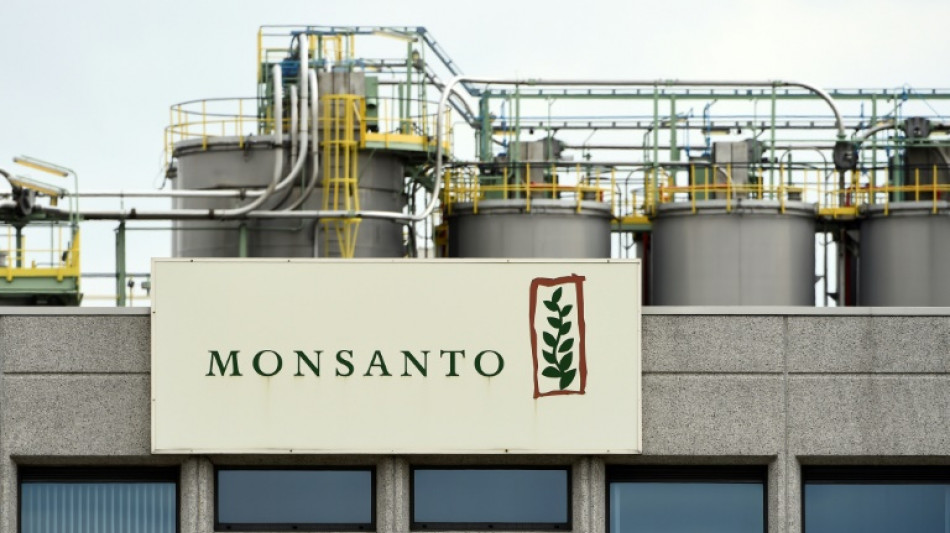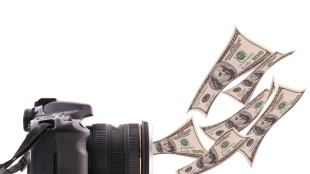
-
 Eurovision 2026 will feature 35 countries: organisers
Eurovision 2026 will feature 35 countries: organisers
-
Cambodia says Thailand bombs province home to Angkor temples

-
 US-Ukrainian talks resume in Berlin with territorial stakes unresolved
US-Ukrainian talks resume in Berlin with territorial stakes unresolved
-
Small firms join charge to boost Europe's weapon supplies

-
 Driver behind Liverpool football parade 'horror' warned of long jail term
Driver behind Liverpool football parade 'horror' warned of long jail term
-
German shipyard, rescued by the state, gets mega deal

-
 Flash flood kills dozens in Morocco town
Flash flood kills dozens in Morocco town
-
'We are angry': Louvre Museum closed as workers strike

-
 Australia to toughen gun laws as it mourns deadly Bondi attack
Australia to toughen gun laws as it mourns deadly Bondi attack
-
Stocks diverge ahead of central bank calls, US data

-
 Wales captain Morgan to join Gloucester
Wales captain Morgan to join Gloucester
-
UK pop star Cliff Richard reveals prostate cancer treatment

-
 Mariah Carey to headline Winter Olympics opening ceremony
Mariah Carey to headline Winter Olympics opening ceremony
-
Indonesia to revoke 22 forestry permits after deadly floods

-
 Louvre Museum closed as workers strike
Louvre Museum closed as workers strike
-
Spain fines Airbnb 64 mn euros for posting banned properties

-
 Japan's only two pandas to be sent back to China
Japan's only two pandas to be sent back to China
-
Zelensky, US envoys to push on with Ukraine talks in Berlin

-
 Australia to toughen gun laws after deadly Bondi shootings
Australia to toughen gun laws after deadly Bondi shootings
-
Lyon poised to bounce back after surprise Brisbane omission

-
 Australia defends record on antisemitism after Bondi Beach attack
Australia defends record on antisemitism after Bondi Beach attack
-
US police probe deaths of director Rob Reiner, wife as 'apparent homicide'

-
 'Terrified' Sydney man misidentified as Bondi shooter
'Terrified' Sydney man misidentified as Bondi shooter
-
Cambodia says Thai air strikes hit home province of heritage temples

-
 EU-Mercosur trade deal faces bumpy ride to finish line
EU-Mercosur trade deal faces bumpy ride to finish line
-
Inside the mind of Tolkien illustrator John Howe

-
 Mbeumo faces double Cameroon challenge at AFCON
Mbeumo faces double Cameroon challenge at AFCON
-
Tongue replaces Atkinson in only England change for third Ashes Test

-
 England's Brook vows to rein it in after 'shocking' Ashes shots
England's Brook vows to rein it in after 'shocking' Ashes shots
-
Bondi Beach gunmen had possible Islamic State links, says ABC

-
 Lakers fend off Suns fightback, Hawks edge Sixers
Lakers fend off Suns fightback, Hawks edge Sixers
-
Louvre trade unions to launch rolling strike

-
 Far-right Kast wins Chile election landslide
Far-right Kast wins Chile election landslide
-
Asian markets drop with Wall St as tech fears revive

-
 North Korean leader's sister sports Chinese foldable phone
North Korean leader's sister sports Chinese foldable phone
-
Iran's women bikers take the road despite legal, social obstacles

-
 Civilians venture home after militia seizes DR Congo town
Civilians venture home after militia seizes DR Congo town
-
Countdown to disclosure: Epstein deadline tests US transparency

-
 Desperate England looking for Ashes miracle in Adelaide
Desperate England looking for Ashes miracle in Adelaide
-
Far-right Kast wins Chile election in landslide

-
 What we know about Australia's Bondi Beach attack
What we know about Australia's Bondi Beach attack
-
Witnesses tell of courage, panic in wake of Bondi Beach shootings

-
 Chiefs out of playoffs after decade as Mahomes hurts knee
Chiefs out of playoffs after decade as Mahomes hurts knee
-
Chilean hard right victory stirs memories of dictatorship

-
 Volunteers patrol Thai villages as artillery rains at Cambodia border
Volunteers patrol Thai villages as artillery rains at Cambodia border
-
Stillwater Critical Minerals Announces Bought Deal LIFE Private Placement for Gross Proceeds of C$10 Million

-
 Liberty Tax(R) Offering Free Consultations to Help Taxpayers Navigate OBBBA Changes Ahead of an Expected Record Refund Season
Liberty Tax(R) Offering Free Consultations to Help Taxpayers Navigate OBBBA Changes Ahead of an Expected Record Refund Season
-
Irving Resources Reviews First Year of Work with JX Advanced Metals Corporation at Omu Project, Hokkaido, Japan

-
 Classover Launches Robotics Division, Expanding Its AI-Driven Education Platform
Classover Launches Robotics Division, Expanding Its AI-Driven Education Platform
-
Baluch Brothers Development Used AI to Enter Bishop Arts Two Years Before New York Times Feature


Monsanto: object of Bayer desire despite GMO fears
German pharmaceutical giant Bayer sees in agroindustry giant Monsanto a gem worth at least $62 million for its dominant global position selling seeds sought by farmers of corn, soybeans, cotton and other commodity crops.
But for the Green movement, especially in Europe, Monsanto turns stomachs for unstinting promotion of genetically modified crops and its widely used herbicide Roundup, often feared as a possible carcinogen.
The merger is still under discussion -- Monsanto rejected the price as too low on Tuesday, but said it is willing to keep talking.
But it raises questions across an industry that is pushing the frontiers of biochemistry amid great nervousness, and consolidating into just a handful of very powerful firms.
- What is Monsanto? -
St. Louis, Missouri-based Monsanto was established by pharmacist John Queeny in 1901 to produce saccharine. Queeny named the company after his wife Olga Monsanto Queeny.
By the 1940s, the company was producing farm-oriented chemicals, particularly the widely used herbicide 2,4-D, and slowly became a US household name.
Combined with another dangerous chemical, 2,4-D was used to make the notorious Vietnam War-era defoliant Agent Orange.
In 1976, it launched probably its most famous product, Roundup, the world's most widely used herbicide. Its active chemical is glyphosate.
The company began in the 1970s looking at the crops that the herbicides were protected, building cell and molecular biology units. In 1982, its scientists were the first to genetically modify a plant cell.
Monsanto then started buying other seed companies and withing five years began field trials of genetically modified seeds.
It eventually developed soybean, corn, cotton, canola and other crops that were genetically engineered to be tolerant of Roundup.
In 1994, Monsanto also became the first to begin selling the biotechnology-based hormone for dairy cows, rBST and rBGH, which was used across the United States to boost milk production. The two have been banned by many other major dairy producers.
- Why is Monsanto so valuable to Bayer? -
Monsanto is by far the world's leading producer of genetically modified crop seeds, and in many of its seed lines it has a dominant market position.
According to Farm Journal, it had 35.5 percent of the market for corn in the United States in 2014. It had a 28 percent share for soybeans, behind DuPont.
The company owns around 1,700 patents. In 1991, it lost its patent on glyphosate herbicide, but retains a huge market share in part by having marketed its "Roundup-Ready" genetically modified seeds.
Monsanto also owns one of the leading data analytics firms for farmers, Climate Corp.
- What makes Monsanto so controversial? -
Many people and countries, especially in Europe, have not accepted the use of genetically modified organisms -- which they label "frankenfoods."
They say GMO seeds are dangerous to introduce to the farm and food system generally, and foods produced from GMO crops could turn out unsafe to eat.
In addition, Monsanto's strong market position, critics say, can leave farmers dependent on it because they cannot reproduce Monsanto crops with their own seeds due to the company's patents.
In addition, critics say the herbicides the company sells are dangerous to human health, and some have been banned in certain countries.
A merger with Bayer thus could give the combined company even more power in the market, with farmers already facing consolidation among suppliers.
In December, DuPont and Dow Chemical announce plans to merge, and in China National Chemical Corp. or ChemChina, made a $43 billion offer for Syngenta.
P.Martin--AMWN


